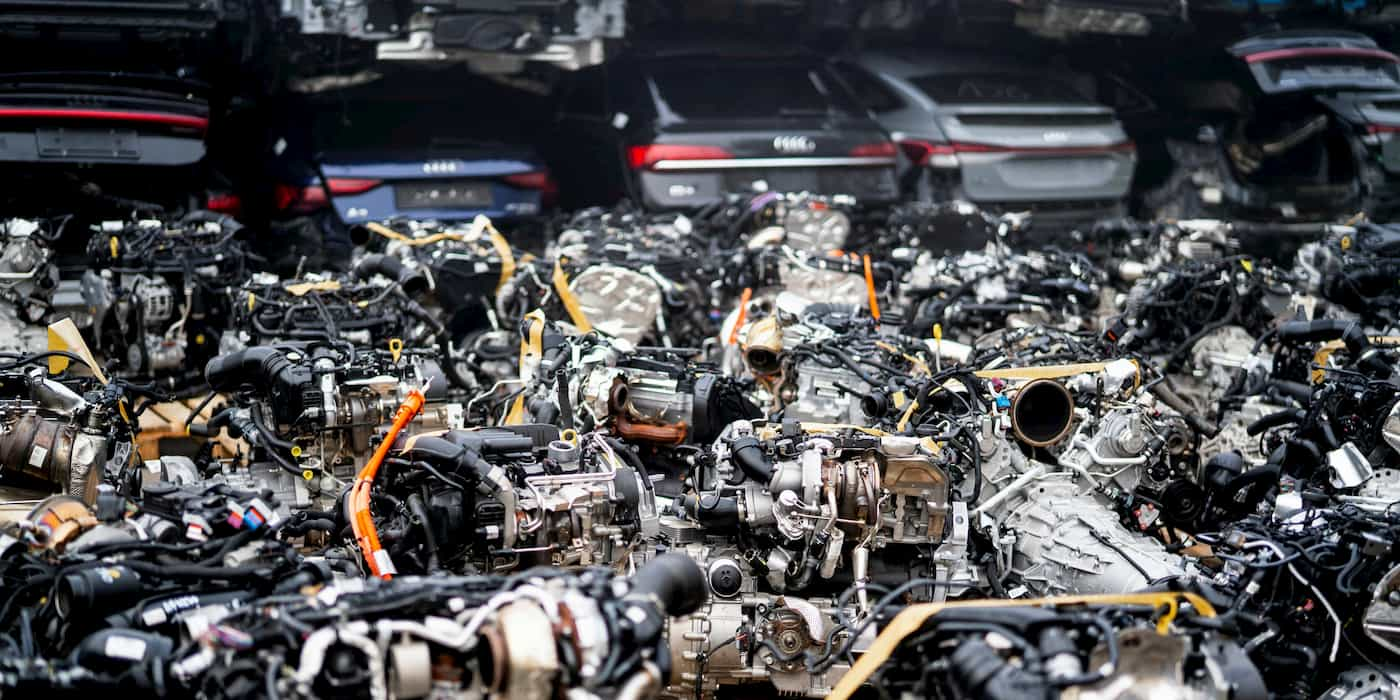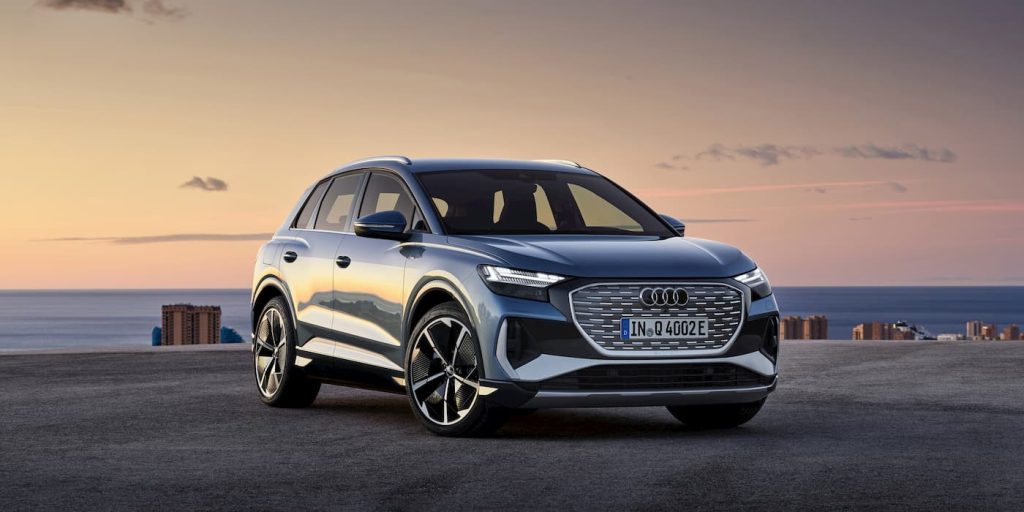
Through its joint project, MaterialLoop, Audi is proving you can turn old cars into new ones. The project aims to “close the loop” on materials, such as steel, aluminum, plastic, and glass, recycling them to build new cars and significantly reduce emissions and waste.
Gas-powered cars emit around 4.6 metric tons of carbon dioxide each year, according to EPA data. However, even before these vehicles reach the road and long after, they are polluting the earth.
Producing aluminum, steel, plastics, and glass can generate significant carbon emissions over time. The IEA estimates direct CO2 emissions from crude steel production is around 1.39 tons of CO2 per ton of steel produced.
Although direct CO2 intensity has fallen slightly over the past few years, the IEA says “substantial cuts” are still needed to get on track with the Net Zero Scenario for zero emissions by 2050.
This has led some automakers, environmentalists, and other policymakers to develop the idea of a circular economy in the auto industry. In other words, recycling old car parts to make new vehicles.
Audi has joined forces with 15 research, recycling, and supplier partners on its “MaterialLoop” project, focusing on saving valuable materials and reusing them for production, which will lower the vehicle’s environmental footprint.

Audi shares findings from its recycled car project
Back in October 2022, Audi says 100 vehicles were dismantled as part of the project. After disassembly, car materials were sorted into groups such as steel, aluminum, plastic, and glass, as the partners tested the reuse of each after recycling.
Findings from the project, according to Automobilwoche, suggest over 85% of the steel and more than 60% of the aluminum from Audi’s end-of-life vehicles can be reused and recycled for future cars.
Audi is using recycled steel to build inner door parts for around 15,000 vehicles at its Ingolstadt press plant in Germany.
The German automaker says it has been gathering knowledge on using recycled automotive glass since last spring in a separate pilot project. Car windows broken beyond repair are smashed into small pieces and melted down. In fact, Audi says the glass is already being used in production for the Q4 e-tron electric SUV (pictured above).
For the first time, Audi has established a process that uses chemical recycling to reuse plastic waste for the series production of the Audi Q8 e-tron.
Electrek’s Take
Several automakers have used the idea of a circular economy in the auto industry as a way to greenwash; Audi seems to be taking a strategic approach and finding promising results.
If Audi can recoup over 85% of its steel and 60% of the aluminum from its vehicles, it would be a huge breakthrough – not only for Audi but also for other Volkswagen brands and the industry as a whole.
Using recycled raw materials would be beneficial all around, with fewer emissions, lower costs, and more resources available. With so many gas-powered vehicles set to retire as the auto industry transition to electric, recycling will become a key factor in securing materials.
FTC: We use income earning auto affiliate links. More.



Comments